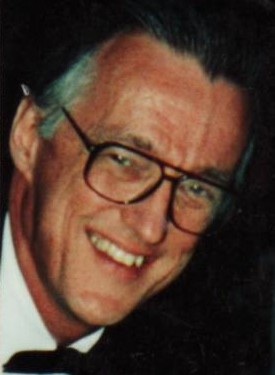Then I worked in the U.S. Foreign Service as an American diplomat for fifteen years. Most of what I did was connected to some kind of risk and violence. I was in the middle of the revolution in Libya and the war in Vietnam. I was smart and tough and I stayed alive and got promoted rapidly.
But even after the promotions, what I was doing for a living began to sit like a bad meal in the pit of my stomach. Something was wrong. Something was missing. You see, mixed in with all the tough guy stuff I was doing was a set of dreams, of ideals—about peace, about fairness in the world, about ending the suffering caused by wars and revolutions and poverty. It was a small, nagging voice from my heart and I ignored it for many years.
Then, in the late 70’s, the Foreign Service sent me to the US Mission to the United Nations in New York. Part of my job was representing the US on the UN Security Council committee that oversaw the arms embargo on South Africa. That embargo was passed by the UN to keep people from sending guns and military equipment to South Africa military and police. Why? Because guns and military equipment sold to the white South African Government in those years were used to oppress black people in a brutal racist system called apartheid.
But the embargo leaked like a sieve. Why? Because there were huge amounts of money to be made in the arms trade, and the gun dealers had their friends in Europe and in our own Congress. So guns and other military equipment slipped through to the South African police and army, and were used to oppress blacks. The situation stunk of greed and hypocrisy, and our country, despite our wonderful words on human rights, was right in the middle of it. My own timid government told me that it was useless to try to correct this evil.I ignored that advice and I worked secretly for months on my own to tighten the embargo. I did that by helping some African and Asian countries at the United Nations increase their pressure against the United States. I even helped some of those countries write their attacks on my own government—once I saw an angry message from an African Foreign Minister to the US Secretary of State; in the middle of that message was a paragraph that I myself had helped write two weeks before.
I waited until this pressure had built, then I went to my own bosses and told them that the situation was now so intense that the US had no choice but to agree to a tougher embargo. It worked. That tougher embargo was passed in the spring of 1980. And, in time, that helped end apartheid. At any time in this process I could and should have been fired—and almost was
Why did I do this? Why did I risk a career that was very important to me? I did it because of one afternoon in South Africa that started in the poverty and oppression of Soweto, a black ghetto outside Johannesburg. I walked down dusty, garbage-strewn streets and felt dozens of angry black eyes boring into the back of my white head. As a US diplomat, I was invited that evening to a fancy cocktail party in Johannesburg’s richest white suburb, in a mansion protected by iron fences and guard dogs. Apartheid stank.
Why did I take those risks? Because, after that day, helping end apartheid meant something to me at the deepest place in my soul. I took those risks for something I finally believed in more than adventure or power. It was also not lost on me that I’d just had the best adventure of my life and it had nothing to do with dodging bullets or hanging off a cliff by a rope. It had to do with finding what gave my life meaning and then going for it with everything I had.
The experience was like learning to swim. I couldn’t forget what I’d done or how I’d done it. I couldn’t forget how happy and fulfilled I felt in making a difference like that.
I’d found the meaning for my life and I’d found it in service, in making life better for other people, in helping solve a significant public problem. The lesson to me, repeated many times since, is that nothing is more important than finding meaning for our lives and that the surest path to a meaningful life is service.
When I left the Foreign Service I joined the Giraffe Heroes Project. We find people sticking their necks out in service to others (we call them “Giraffes”) and we tell their stories in our publications, on our website, in schools, and in the media. People see or hear about Giraffes and are inspired to take on the challenges they see, from cleaning up a wetland to helping end hunger and homelessness. The Giraffes we honor are people like Neto Villareal. Here is his story:
There’s a small town in Idaho named Marsing, and in that town, football is everything. On Friday nights, hundreds of people from the town and the farms around it would come to watch the Marsing Huskies play. Ernesto "Neto" Villareal was a star player on the high school team, good enough to be considered for a college scholarship.
Next Page 1 | 2 | 3 | 4 | 5 | 6
(Note: You can view every article as one long page if you sign up as an Advocate Member, or higher).





